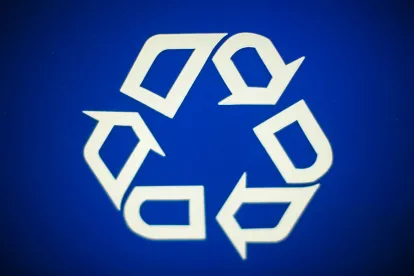The Oregon legislature is considering House Bill 2065 (Bill or HB 2065), a bill designed to restructure Oregon’s recycling system. The Bill is the result of the Oregon Recycling Steering Committee, a collaborative process to address Oregon’s recycling issues. HB 2065 seeks to overhaul Oregon’s recycling system and shift some of the recycling responsibility onto producers and manufacturers.
Key Takeaways
-
If passed, Oregon’s recycling program could significantly change the way manufacturers and producers package their products.
-
Oregon is one of the states, along with Maine and New York, to provide model legislation that incorporates Extended Producer Responsibility requirements.
-
Producers that make certain products will have increased responsibility and costs associated with their products. Covered products include packaging, printing and writing paper, and food serviceware that is generally intended for single-use.
-
Manufacturers and producers should keep track of whether their products are covered under the proposed legislation to ensure compliance if the Bill passes.
Recycling Overhaul
HB 2065 intends to make recycling easier for the public, expand access to recycling services, and upgrade recycling sorting facilities. To increase the ease of recycling, the Bill prohibits the use of misleading recycling labels on products sold in Oregon. Clear labeling will help decrease the commingling of recyclable products and waste, which can lower costs and minimize landfill waste. It also establishes a consistent statewide recycling collection list, making it easier for both the public and recyclers to collect, sort, and process products across the entire state.
Producer Responsibility Requirements
If implemented, certain producers would be required to join, pay fees and provide information to a producer responsibility organization (PRO). Under the Bill, PROs would have to meet certain requirements, including, but not limited to:
-
Support the recycling of covered products.
-
Maintain a registry of PRO members and manage PRO membership.
-
Provide the Oregon Department of Environmental Quality (ODEQ) with a producer responsibility plan that requires, among other things, PROs to maximize the use of existing infrastructure, incentivize members to create environmentally responsible designs, and improve collection opportunities.
-
Pay a fee for any covered product that it sells or offers to sell in Oregon.
-
Submit an annual report to ODEQ outlining the producer’s development, implementation, and operation of the producer responsibility program. The fees that producers pay are placed into a Producer Responsibility Fund, which pays the costs associated with administering, implementing, and enforcing numerous aspects of the Bill.
The bill is in the House Committee on Health Care with a subsequent referral to the Joint Committee on Ways and Means.





 />i
/>i

